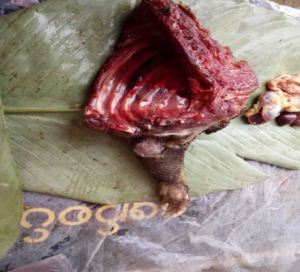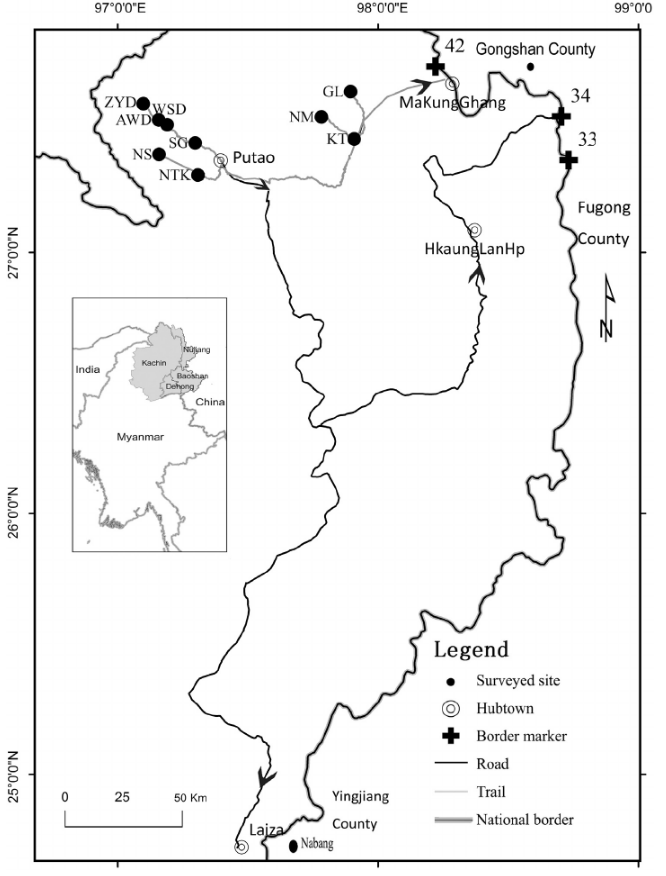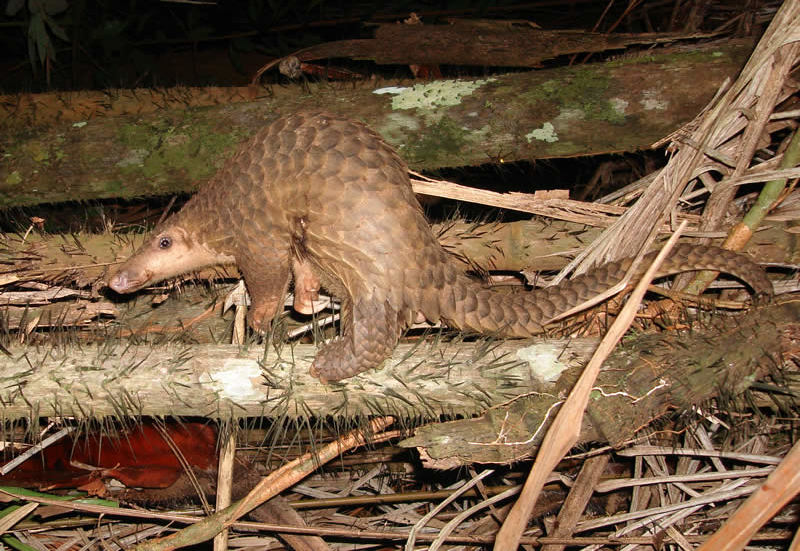You may know the pangolin as the inspiration for Sandshrew, the Pokémon. Or you may have heard the fake news that pangolin fetus soup can increase your virility. You may not have known that at least two species of this lovable mammal are native to Myanmar, and that they are meant to be protected by an international trade ban and domestic animal trafficking laws.
Sadly, none of these laws are doing anything to stop poachers from trafficking Myanmar’s pangolins to China, according to a new study published by the journal Global Ecology and Conservation.
Pangolins are adorable, scaly mammals that curl up into a tight ball when they’re threatened. Their scales are a popular ingredient in traditional Chinese medicine, and their meat is also a consumed in Myanmar. They are considered “the most trafficked mammal in the world”.

But their passive self-defense tactic makes them uniquely vulnerable to poaching, says Vincent Nijman, a professor of anthropology at Oxford Brookes University and one of the authors of the recent study.
“Pangolins are interesting as, say 10 years ago, very few people had heard of them, yet they are now the poster child of illegal wildlife trade, alongside elephants, tigers and rhinos. But in all the areas where pangolins occur naturally, the local people do know the monetary value of the animals. And they come in a package that makes them ideal to transport: rolled up in a ball. All you need to do when you encounter one in the forest is pick it up and put it in a bag. Sorted. Ready to be passed on to the next stage of the trade network,” he told Coconuts Yangon.
This went on for decades in many parts of Asia and Africa before the cause of the pangolin gained global attention. Finally, in September 2016, the Convention on International Trade in Endangered Species of Wild Fauna and Flora (CITES) voted to outlaw cross-border trading of pangolins.
Furthermore, the two varieties native to Myanmar – the Sunda pangolin (Manis javanica) and the Chinese pangolin (Manis Pentadactyla) – are listed as Critically Endangered on the IUCN Red List and are protected from unlicensed killing, hunting, wounding and exporting under Myanmar’s Protection of Wildlife and Protected Areas Law.
But none of this has not stopped Myanmar poachers.
The study, published earlier this month, is based on interviews with 38 people living in villages in northwest Kachin State, where pangolins live before humans abduct them in droves. They all acknowledged that pangolin trafficking still occurs in the area around Putao, Kachin State, and that they are aware that it is illegal.
They also identified three routes poachers use to transport pangolins and their scales from northwest Kachin State to vendors in China. Two of the interviewees said other wildlife products, including gibbons’ carcasses, bears’ gall bladders, turtles, tortoises, and orchids follow the same routes.

The study estimates that as many as 2,800 pangolins or their scales are illegally exported from northwestern Kachin State to China every year. (The bodies of pangolins must be boiled to remove the scales.)
Poachers sell the scales to wholesalers for between $190 and $290 per kilo, the study says. Vendors in China, including restaurants, sell pangolin scales for up to $500 per kilo. The authors of the study also learned that pangolin scales are on sale at the Putao airport in northern Kachin State for $130 per kilo.
So what are the Myanmar authorities doing to stop this illegal trade? Apparently nothing. The eight government agencies authorized to crack down on the illegal wildlife trade have made zero seizures of pangolins or scales between 2010 and 2016. Just across the border in China, however, there have been 30 seizures during the same period.
In these 30 seizures, 189 pangolins, some alive and some dead, and approximately 2,155 kilos of scales were confiscated in three Chinese prefectures bordering Kachin State. The discrepancy between the frequency of seizures on either side of the border suggests that better enforcement on the Myanmar side could go a long way in fighting the illegal pangolin trade.
“Of course, it is possible that people do get arrested and prosecuted in Kachin, albeit unlikely,” says Nijman. “But if this happens, it certainly does not get known to the wider public in Kachin or elsewhere in Myanmar, and hence, does not act as a deterrent.”
“Demand in Myanmar itself is probably very small, and the value is so high across the border into China, that most pangolins caught in Myanmar sooner or later end up in China,” Nijman adds.
“It cannot be much longer before almost all of them have gone.”





Reader Interactions